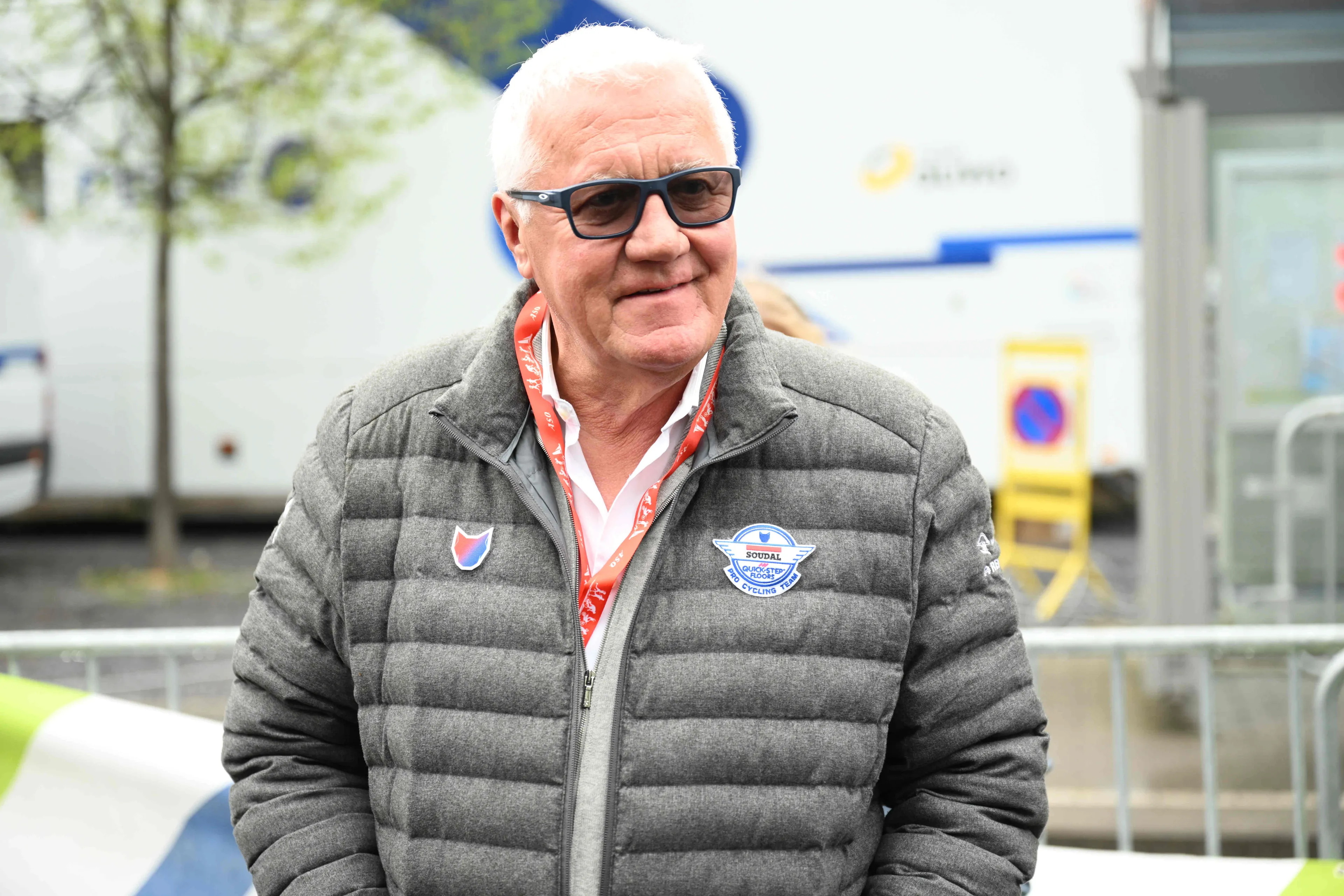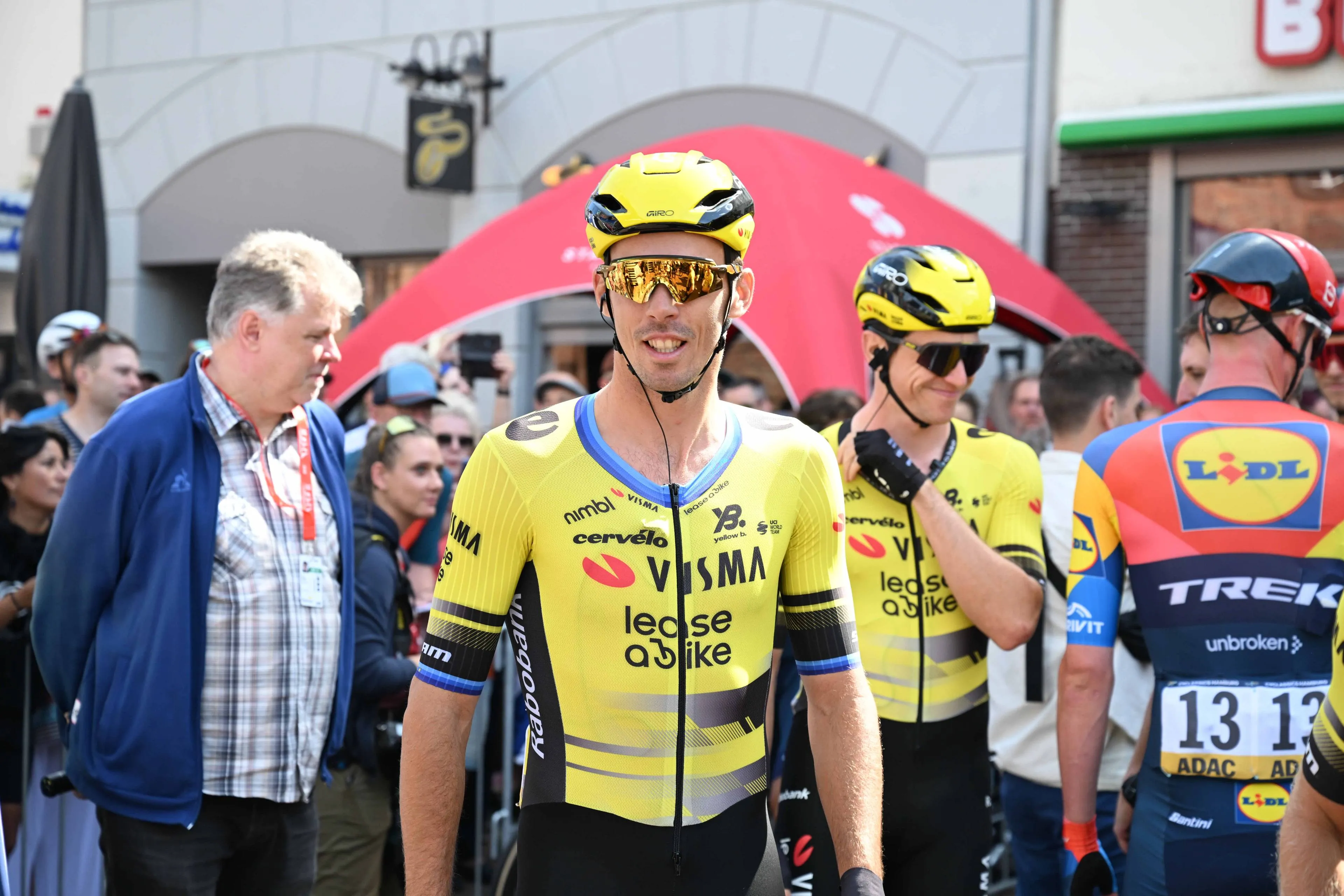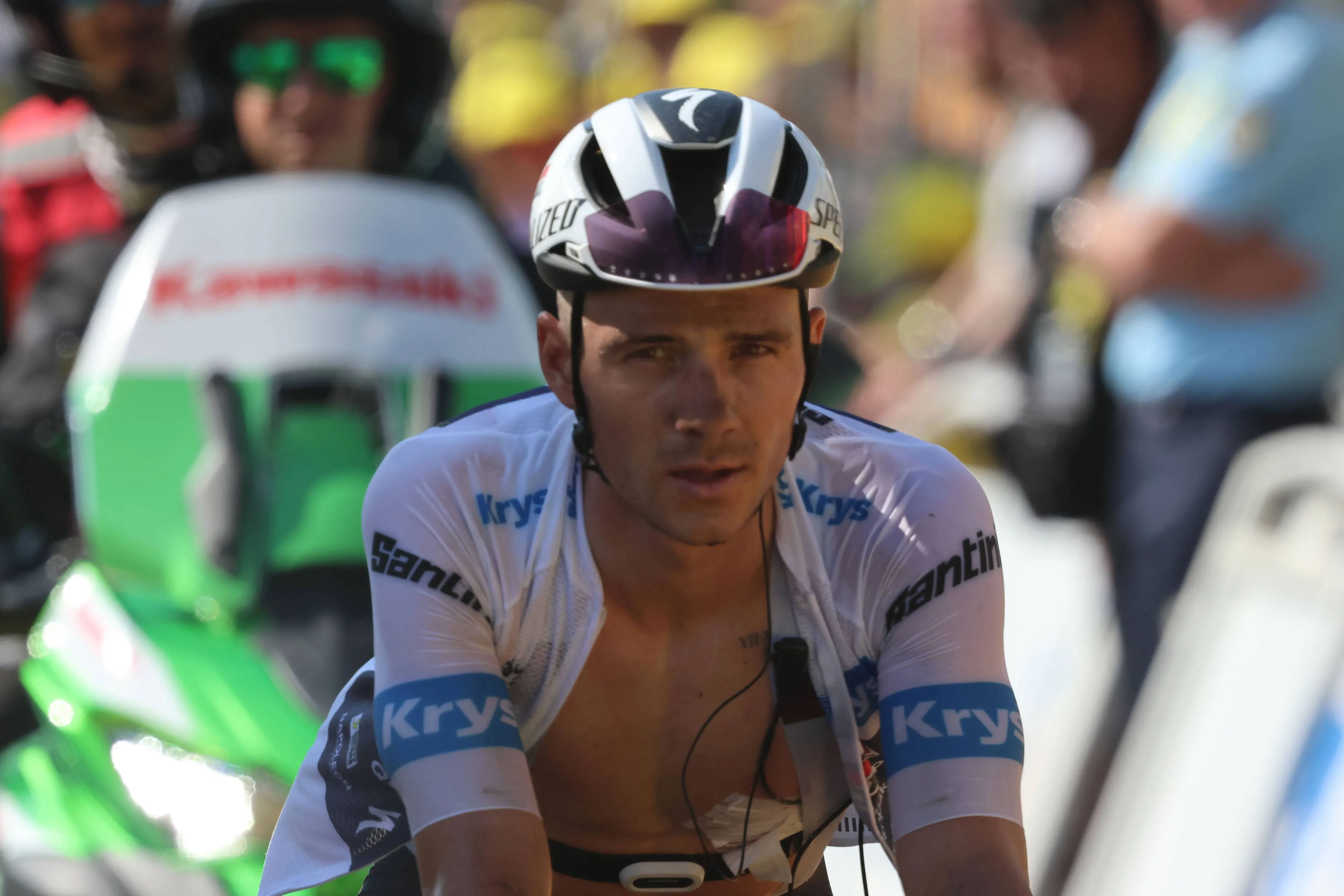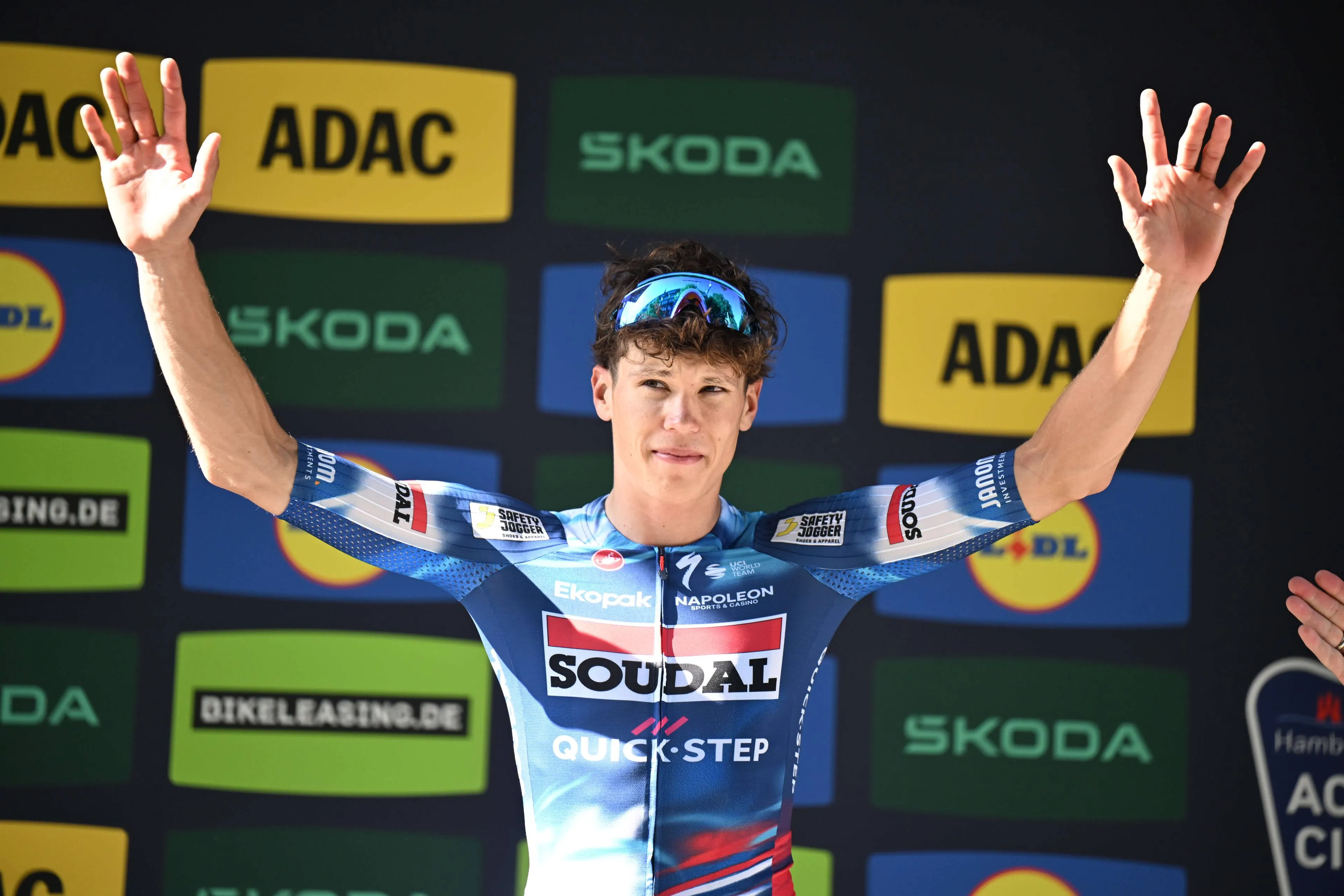Lefevere, on Unzué's substitutions idea: "Cycling is not football. Who is going to decide when an injury or illness is real?"
CyclingThursday, 08 February 2024 at 05:46
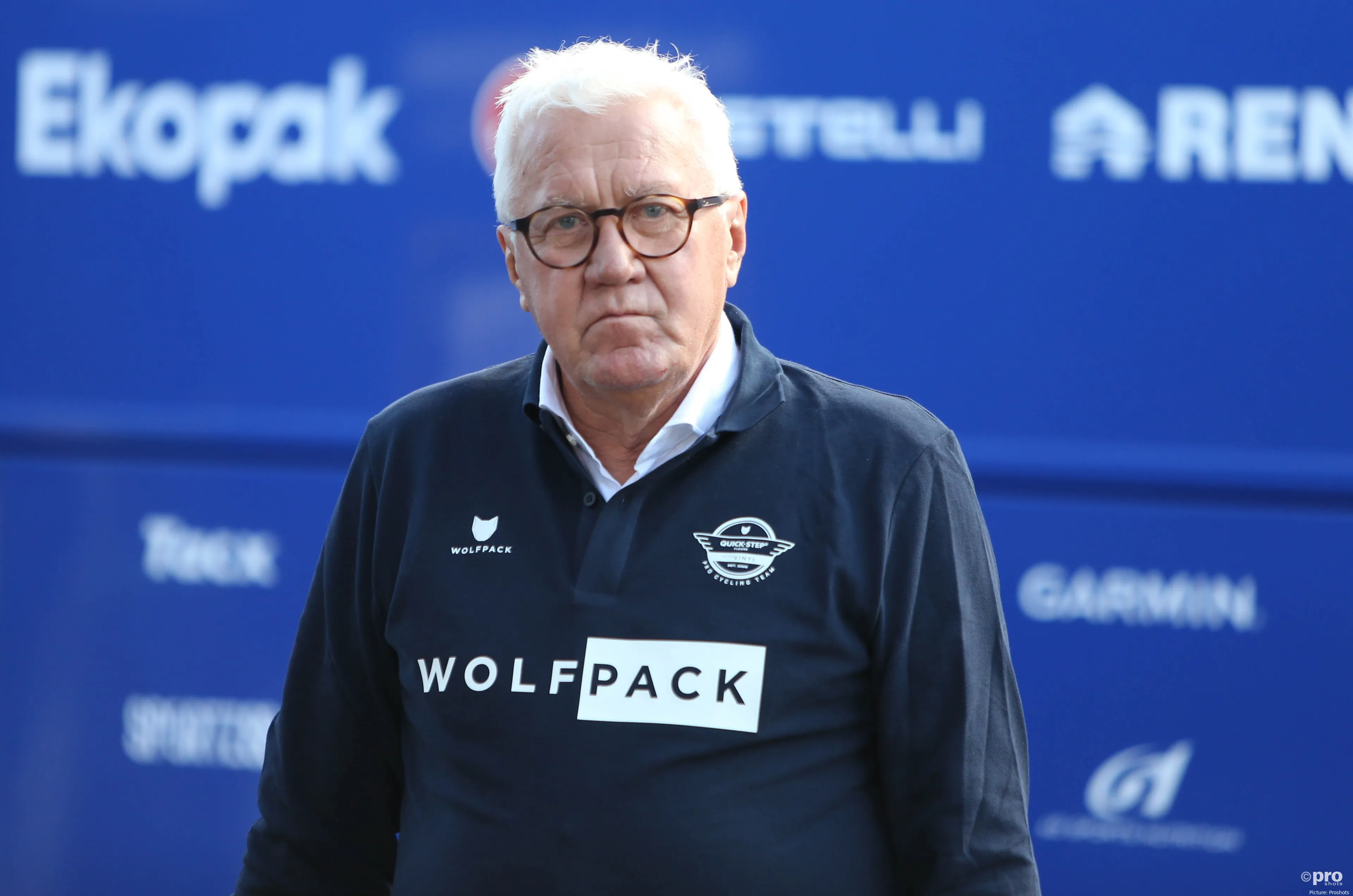
Eusebio Unzué, director of the Movistar team, has recently raised the possibility of introducing a system of substitutions in cycling, with the aim of providing a more human approach to racing. However, his colleague Patrick Lefevere, leader of the Belgian team, Soudal Quick-Step, does not share this vision.
Unzué proposes that, in the event that a rider drops out during the first week of a grand tour, teams should have the opportunity to replace him. He argues that this would be fair to those riders who are left out of the main lineup, despite having prepared for the competition. He believes that cycling needs to evolve and adopt more humane rules.
However, Lefevere disagrees with this idea. Speaking to Het Laatste Nieuws, he expressed his disagreement, arguing that allowing substitutions would erase the very essence of grand tours. He says the challenge lies in completing the three weeks of racing and that allowing changes would undermine the importance of endurance and the ability of teams to adapt.
Read also
"I've known Unzué for a long time. He has good intentions, but sometimes he is too sweet. In this case, I don't agree with him. With this rule, the whole history of grand tours is erased. It's just the challenge of maintaining three full weeks. Tour, Giro and Vuelta last 21 days, not 17 or 15. I also think it's human, but we're not going to turn them into wimps, are we?" commented Lefevere.
In addition, Lefevere points out that crashes and illness are inherent elements of cycling, and part of a team's merit lies in its ability to overcome these adversities and stick to a plan B:
"Unfortunately, falls and illnesses are part of it. So much of your team's success is in resilience, in being able to switch to a plan B. Those are the moments when great champions pick themselves up, bounce back after a setback: that's what people want to see. Management is boxing: just because you're on the ropes at one point doesn't mean you lose the field."
Read also
The Belgian manager also raises concerns about the feasibility of implementing a substitution system. He questions who would determine the severity of an injury or illness, and how it would distinguish between fatigue and medical conditions. He also expresses skepticism about the fairness of such a system and the ability of doctors to properly assess each situation:
"Cycling is not soccer. Who is going to decide when an injury or illness is real? I'm already looking forward to the VAR. It will be absolutely impartial and will no doubt be composed of French doctors. No, this is going to make our hair stand on end. I'm not going to stop it, but I'm not going to support it either. It will be for cycling after Lefevere".
Read also
MATXIN
On the other hand, Joxean Fernández Matxin, sport director of UAE Team Emirates, does not completely rule out Unzué's idea, but acknowledges its complexity. He suggests a simpler variant that would give each team the right to change one rider during the last week of the competition.
"It's complicated. Who's going to assess whether a fall is serious enough? How bad does an injury have to be? Does the kneecap have to be broken, or is knee pain enough? What about fatigue? After two weeks of running, exhaustion is a lot like being sick. Still, I love the idea itself. I'm in favor of a simple variant, without medical criteria: I would give each team the right to change a rider in the last week," Matxín commented.
claps 2visitors 2
Just in
Popular news
Latest comments
- Go back a few months and check what I wrote. This guy is the best sprinter out there in the next 5 years. Also he can do more than sprint ..
 PAULO19-02-2026
PAULO19-02-2026 - Fantastic climb by Tiberi. Let’s see more of this from him.Pedalmasher19-02-2026
- Loved watching this finale. Brutal climb, looked like a brand new Middle Eastern Alpe d'Huez with those switchbacks on the mountain edge. So much grit on Del Toro's face. I really thought he might catch Tiberi with about 1500m to go. Great stage.antipodeanpedalfan19-02-2026
- You’re expecting cycling to stay immune from this type of conjecture when the worlds’ most watched and listened to figure spouts out similar unsubstantiated crap daily? Most people just follow bad example because it’s a lot easier than figuring out a good one. Anyway, it could be anything, perhaps he just knew Andrew too well, or Sir Jim didn’t want him helping any more of those pesky foreigners and paid him off ;-) He doesn’t seem the Epstein type but if that was it, kudos to him for being practically the only one to resign BEFORE being found out. I find it very concerning that no-one has much to say about any of these people who keep at it until they just can no longer claim their innocence. Who did they learn from, Lance?Mistermaumau19-02-2026
- If you are going to make comments like that, back it up with proof. Otherwise keep them to yourself.Searider18-02-2026
- In the same place as the outcry over boys vs girls losing weight, which, is in about the same place as boys vs girls getting hit, or abused.Mistermaumau18-02-2026
- Haha.awp18-02-2026
- That's a little extreme, you take wins where you can get them.awp18-02-2026
- Ironic no, a British boss of British companies has no problem outsourcing a large proportion of jobs to foreigners and then complains a proportion of that proportion actually lives in the country. And do you expect if you leave that no-one will take your spot?Mistermaumau18-02-2026
- Slowly slowly the youngsters are making more and more of an impact.Mistermaumau18-02-2026
Loading
🇪🇸 Eusebio Unzué, Movistar team manager 🗣️ "Why not allow substitutes when a rider is forced to abandon a Grand Tour during the first week? All teams prepare 10-12 riders for a Grand Tour, so you still got 2 or 3 of them at home." (L'Équipe)
3 Comments


